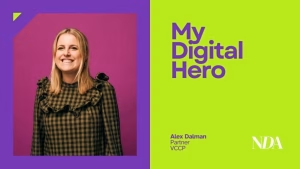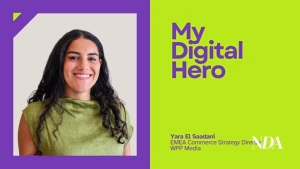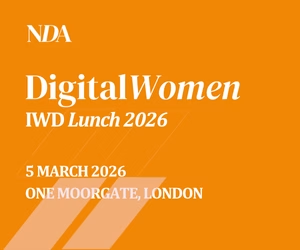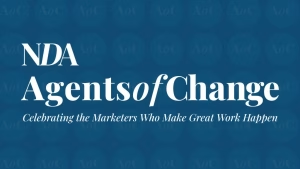Alex Pym is MD of the London office of digital agency Huge. Appointed MD in 2018, he joined Huge in 2016 from SapientNitro and was a director at intermediary Creativebrief.
Who is your digital hero?
I was fortunate to hear Dr. Black’s story first-hand when she was inducted into the BIMA Hall of Fame, and later learned more when she very kindly partnered with Huge on a Change for Good Hackathon that we ran with Amazon and Global Citizen, and can safely say that she is one of the most remarkable individuals in our industry and a true digital hero!
What has she done to win hero status in your eyes?
Dr. Black has a multitude of achievements that merit hero status, not least leading the campaign to save Bletchley Park, the site where Alan Turing’s Bombe Machine was born in 1939, the device that ultimately cracked the Nazi’s Enigma code and is estimated to have shortened WWII by two years.
Dr. Black led a social media campaign that not only halted that decline of Bletchley Park, saving it from the bulldozers, but turned it into the heritage site it deserves to be, by harnessing the power of community that social media can provide.
How has her heroism helped drive digital?
Digital by its very omnipresent nature should be one of the most inclusive mediums, yet at times historically has been anything but.
Dr. Black’s career has challenged the accepted norms, broken down barriers, and empowered the less heard and those who have been marginalised and excluded, to create a far more inclusive digital industry through her fantastic work with BSCWomen, Techmums and many more.
What are the biggest challenges in digital we need another hero to solve?
The potential of AI as a force for good to impact our health is effectively limitless. The work that DeepMind are already doing with protein-folding for example, is mind-blowing.
Their AlphaFold system is on the path to predicting protein shapes at a speed and volume previously unheard of, meaning a massive acceleration of the potential for early diagnosis and treatment of diseases including Alzheimer’s, Cystic Fibrosis and Parkinson’s, which are believed to be caused by mis-folding proteins.
At the other end of the spectrum of importance to the future of the human race, we really could also do with a hero to fix VAR! (Video Assistant Referee in football). What a brilliant example of a technology that essentially works perfectly, yet the execution of the experience, for both the players and the fans, is shockingly bad.
The tech can accurately judge the legitimacy of a goal down to the millimetre, but the user experience has left fans watching on TV thinking wonky lines are being drawn in Stockley Park from a striker’s armpit so that they can disallow a goal for offside, while those in the stadium have no clue what’s going on while a review takes place.
It goes to show the pitfalls of a non-user centric approach. We need a digital hero to start with the fan, the life and blood of the sport, and re-work it from there.
What is your most heroic personal achievement so far in digital?
I’m not sure about heroic, but at Huge London I am laser-focused on building the agency of the future, with digital inherently at its core. I’m fortunate to have brilliant people around me who share a belief in making things people love, and adopting a user-centric approach to creating connected experiences across digital and physical touch-points.
It’s my role to create the best culture bar none and provide a platform for people to do the best work of their careers in partnership with the world’s most ambitious brands.










